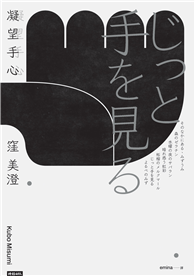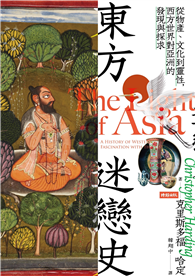This book critically interrogates ’wellbeing’, a concept that is exploding in popularity across the globe. The collection of essays asks not only how wellbeing can be defined and measured, but what is created and excluded in the process of striving for and articulating wellbeing. The editors propose a narrative framework as a novel and insightful lens through which to analyse wellbeing and understand how the "good life" is sought, experienced and talked about. With case studies from around the world, the contributions explore the tensions and overlaps between various scripts about what it means to live well--historically, socially, culturally, economically, and spiritually. The collection brings together a rich array of disciplinary perspectives, including: sociology, politics, anthropology, history, indigenous studies, religious studies, development studies, paediatric medicine, and gender and sexuality studies. The diversity of chapters make the book accessible and appealing, not only to scholars and students of wellbeing in the health and social science disciplines, but also to a broader public readership intrigued by the rise and impact of a buzzword.
| FindBook |
有 1 項符合
Narratives of Wellbeing的圖書 |
 |
Narratives of Wellbeing 出版社:Palgrave MacMillan 出版日期:2024-06-26 語言:英文 規格:精裝 / 普通級/ 初版 |
| 圖書館借閱 |
| 國家圖書館 | 全國圖書書目資訊網 | 國立公共資訊圖書館 | 電子書服務平台 | MetaCat 跨館整合查詢 |
| 臺北市立圖書館 | 新北市立圖書館 | 基隆市公共圖書館 | 桃園市立圖書館 | 新竹縣公共圖書館 |
| 苗栗縣立圖書館 | 臺中市立圖書館 | 彰化縣公共圖書館 | 南投縣文化局 | 雲林縣公共圖書館 |
| 嘉義縣圖書館 | 臺南市立圖書館 | 高雄市立圖書館 | 屏東縣公共圖書館 | 宜蘭縣公共圖書館 |
| 花蓮縣文化局 | 臺東縣文化處 |
|
|
內容簡介
作者簡介
Tarryn Phillips is a medical anthropologist and Associate Professor of Crime, Justice and Legal Studies in the Department of Social Inquiry at La Trobe University, Australia. Conducting ethnographic research alongside Fijian communities for over a decade, she has published widely on issues of diabetes, health inequality, poverty and nutrition. Her most recent book is an ethnographic novel, with Edward Narain, called Sugar (University of Toronto Press, 2024).
Natalie Araújo is Lecturer in Anthropology and Development Studies in the Department of Social Inquiry at La Trobe University, Australia. Her work focuses on intersecting issues of structural violence, trauma, agency, and gender in Latin America, the Latin American diaspora, and the Pacific, and within Culturally and Linguistically Diverse (CALD) communities in Australia.
Timothy Willem Jones is Associate Professor of History in the Department of Archaeology and History at La Trobe University, Australia. His research focuses on the changing relationship between religion, sexuality, gender and wellbeing in modernity. His publications include the monograph Sexual Politics in the Church of England, 1857-1957, and co-edited volumes Material Religion in Modern Britain, and Love and Romance in Modern Britain, 1917-1970.
John Taylor (Jack) is Associate Professor and Anthropology Program Convenor in the Department of Social Inquiry at La Trobe University, Australia. His publications on tourism include the book Consuming Identity: modernity and tourism in New Zealand and the co-edited book Touring Pacific Cultures.
|











